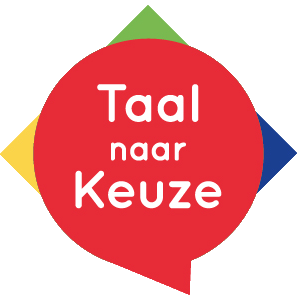The EU project 'Your Language Counts' aims to create a nurturing environment where students can both learn and preserve their home languages. Specifically, during the academic year 2024-2025, home language education classes will be conducted in six formal education schools across Europe, namely in the Netherlands, Sweden, and Finland.
Led by the Goethe Institute in Stockholm, our project boasts a consortium of reputable partners, including the Universities of Uppsala (Sweden) and Duisburg-Essen (Germany), as well as organizations such as Familia (Finland), Enheten för flerspråkighet (Sweden), and Oman äidinkielen opettajat (Finland) and ELIX (Greece).
Throughout the program implementation, participating schools and teachers will actively contribute to various outputs aimed at enhancing awareness of home language education.
These outputs consist of the development of an educational platform offering resources for home language teaching, initially launching with 5 languages (Arabic, Farsi, Russian, Turkish, Somali, Ukrainian). Additionally, an implementation handbook will be compiled, providing insights into the most effective results and methods gleaned from the pilot schools.
Learn more about the project: https://erasmus-plus.ec.europa.eu/projects/search/details/2023-1-DE03-KA220-SCH-000153467
Join us for an inspiring opening event that bridges cultures, languages, and borders!
🌐 Theme: Your language counts: Heritage Language Education across Europe - perspectives, opportunities and challenges
🗓️ Date: 22nd March 2024
🕒 Time: 14.00-15.30 CET
📍 Location: Zoomlink
What to expect:
1. Keynote Speech: Gisi Cannizzaro - Countless ways to support HL educators
Heritage language (HL) education programs benefit society in multiple ways. At the individual level, the maintenance of linguistic and cultural heritage by HL programs can lead to an overall increased well-being of multilingual students. At the societal level, HL programs build knowledge and skills that help communities sustain a culture of peace, global citizenship, and appreciation of cultural diversity.
HL programs are most successful when they are backed by the broader communities where they operate. Something as simple as citizens being aware of which heritage language education programs are available in their region can lead to greater sustainability of those programs! In this talk, we highlight additional ways appreciation and support can be shown for active language groups that arrange language and culture education to multilingual children. In light of the EU project “Your Language Counts,” we show that a great deal be done worldwide to improve the circumstances surrounding this valuable form of education, making reference to the recently launched Global Call to Action for Heritage Language Education.
2. EU Project “YourLanguageCounts”:
○ Discover the project supported by the EU and Erasmus +.
○ Learn how this initiative promotes intercultural awareness across Europe
3. Interactive Poll: What are your experiences with HLT?
4. PanelDiscussion:
○ “Heritage Language Education in Sweden, Finland, Netherlands and Germany: Nurturing Inclusion and Equity”

